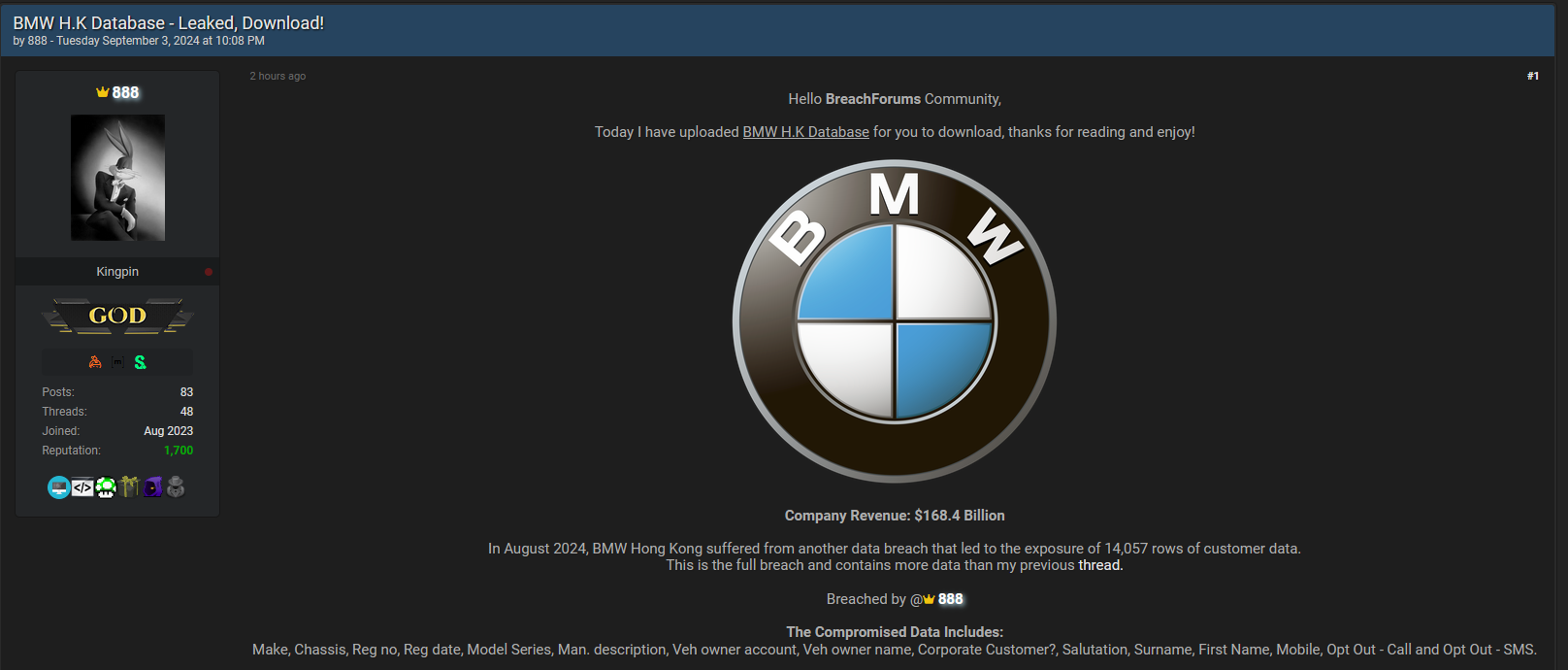BMW Hong Kong Data Breach: 14,000 Customer Records Exposed
BMW Hong Kong hit by another data breach, exposing over 14,000 customer records. #DataBreach #Cybersecurity #BMW

BMW Hong Kong, a subsidiary of the global luxury automobile manufacturer BMW, has experienced a significant data breach, revealing sensitive information of its customers. The breach, which occurred in August 2024, marks the latest in a series of cybersecurity incidents targeting the company. According to a post on BreachForums by the threat actor known as 888, the breach has compromised 14,057 rows of customer data, further escalating concerns about BMW's data security practices.
Company Overview
BMW, headquartered in Munich, Germany, is one of the world's leading luxury automobile manufacturers, with a revenue of $168.4 billion in 2023. The company operates worldwide, with significant presence in markets such as Europe, the United States, and Asia. BMW Hong Kong represents the brand's interests in the region, catering to a market known for its strong demand for luxury vehicles.
Breach Details
The latest breach, announced by 888, a notorious hacker known for their involvement in several high-profile data breaches, is believed to have exposed critical customer data. This information includes:
- Vehicle make, chassis number, and registration details
- Model series and manufacturing descriptions
- Vehicle owner account information
- Owner's name and contact details (including mobile numbers)
- Corporate customer identifiers
- Opt-out statuses for calls and SMS communications
This breach is particularly alarming given that it follows another incident involving BMW Hong Kong earlier this year. The previous breach, also orchestrated by 888, had already put the company under scrutiny. The recurrence of such incidents raises questions about the effectiveness of BMW's cybersecurity measures, especially in protecting customer data.
Threat Actor Profile
The breach was carried out by 888, an individual or group with a reputation for targeting large corporations. Operating on underground forums like BreachForums, 888 has been linked to numerous data breaches, often focusing on stealing and selling sensitive information for profit. Their tactics typically involve exploiting vulnerabilities in corporate networks, which suggests that BMW's defenses may have been compromised either through outdated software or inadequate security protocols.




